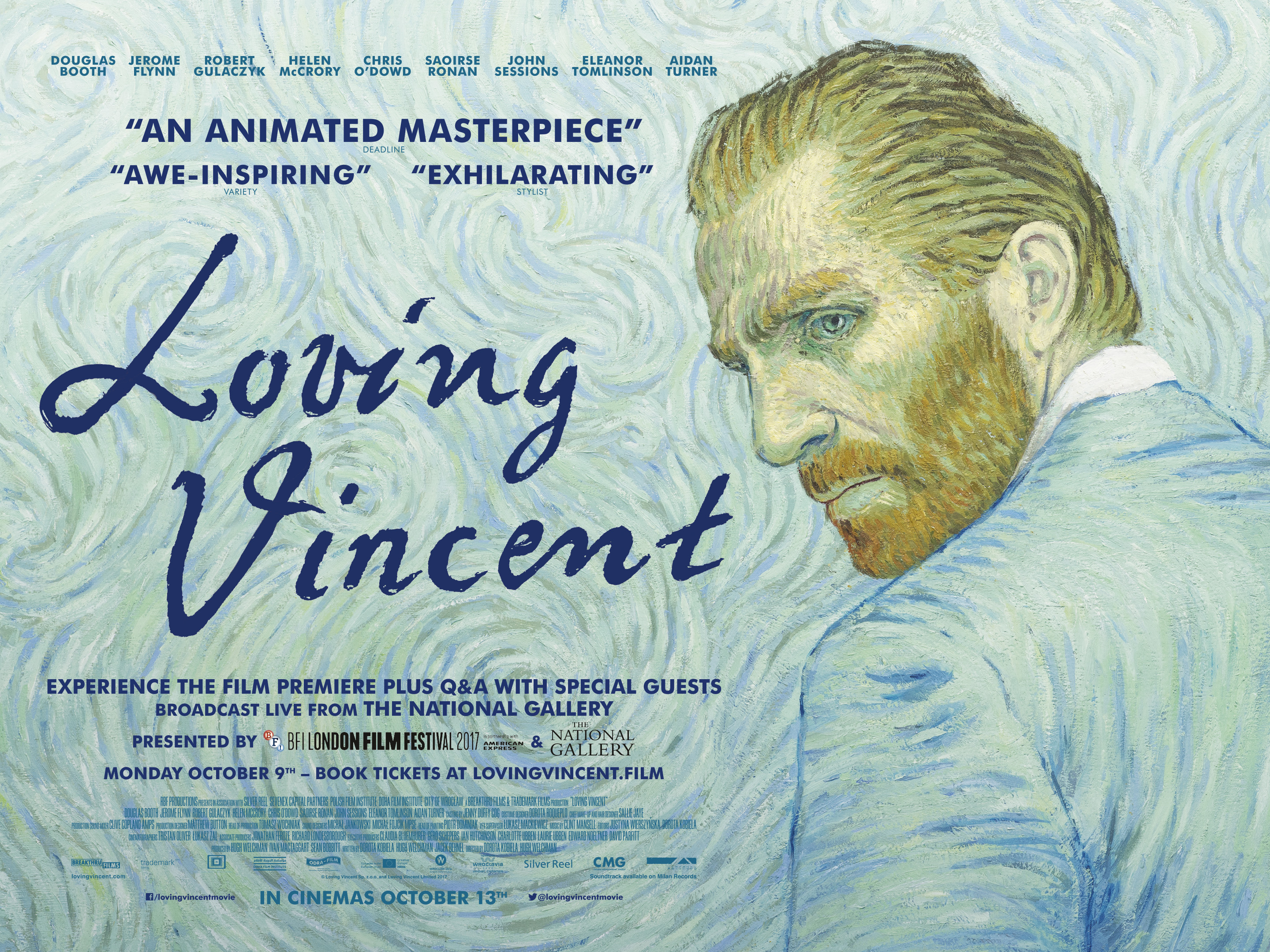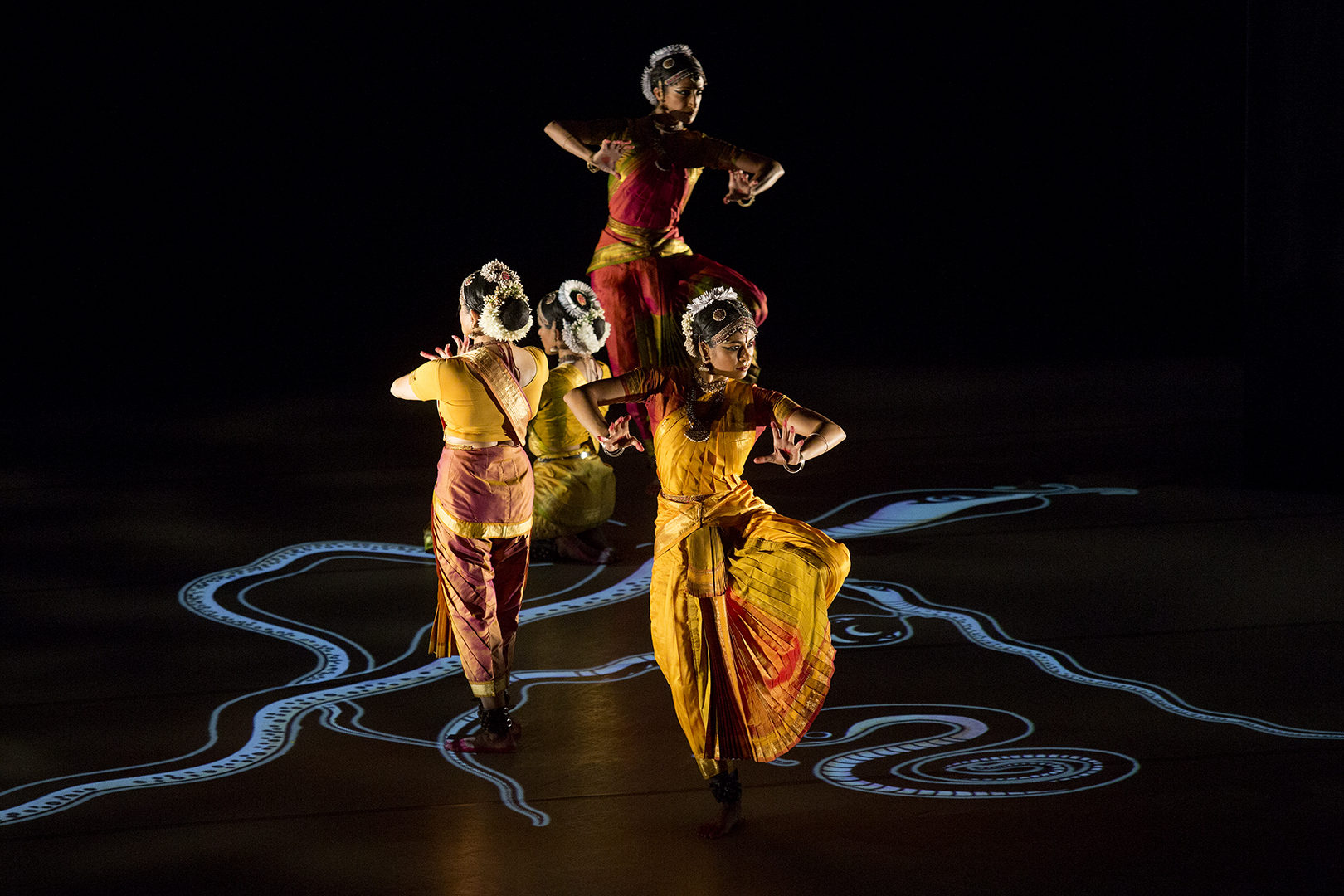A painting in motion — Loving Vincent. Brushstrokes that mimicked the iconic artistry of Vincent van Gogh’s own paintings moved to tell the biography of Vincent in a never-before-seen feature film. An hour and thirty-four minutes of animated paint, in the style of Vincent van Gogh, was an exquisite film that I felt honored to behold with my own two eyes.
It was a rainy Sunday night, with the typical wind chills of early November in Ann Arbor, when I went to see the film with some of my colleagues. We had just come from a fantastic dinner of pizza, including margherita pizza — my favorite kind of pizza — and joined the ranks of Loving Vincent moviegoers lined up outside of Michigan Theater.
Luckily, we had arrived just in time not to miss the beginning of the film itself. The whole lot of us settled upstairs in the balcony, appreciating the extravagance of the Michigan Theater’s classic theater setting and ambience. As soon as we settled into our seats, the lights dimmed and the screen flitted between trailers of upcoming indie films and the like. And then, at long last, Loving Vincent painted itself across the screen.
In a word, Loving Vincent was…divine. Artistic. Exquisite. Every second of it, quite literally the epitome of a painting in motion, enraptured the audience with its imagery.
Honestly, the second the movie opened, I was already mesmerized by the names rolling on the screen through their careful and immaculate brushstrokes. I was watching the lines of colors, imitating Vincent’s illustrious and iconic style, move across the screen in unison to depict movement. It was enrapturing.
I felt chills go down my spine.
The movie opens with the most renowned and perhaps most well-known work by the artist: Starry Night — hooking every audience member with its fine brush work and celebrated imagery as one of the most historically reputable works of art. It was so meaningful to see that be the opening scene to a film revolving around the artist, to whom the film is dedicated for, I was just captivated and touched by it. And then, when that Starry Night picture began to actually move, animated brushstrokes depicting the scene, my heart melted. Such an extraordinary picture transformed into a setting for a narrative to take place. It was the most fitting way to tell the biography of Vincent van Gogh.

As for the narrative itself — the story follows Armand Roulin, who is to hand-deliver a letter from Vincent to Theo van Gogh, Vincent’s brother. In this narrative, Armand learns more and more about the late artist Vincent, who had been a new artistic sensation in Paris at 28 but took his life while at the verge of his own impending success as an artist. Although skeptical and critical of Vincent in the beginning, Armand slowly grows wistful and fond of him. In fact, Armand even comes to Vincent’s defense when bad gossip arises and surrounds his death and reputation.
I’ll spare you all the details, but basically — the film follows Armand, a man who seems far detached from having any relation or kinship with Vincent van Gogh, and Armand’s journey to find the truth behind Vincent’s death — whether it was a suicide or a murder, what his motives were, who Vincent van Gogh truly was.

Ultimately the film really is a biography of Vincent van Gogh, which doesn’t lend itself to having that much opportunity to deviate from reality and express creativity and imagination as wildly as possible, as one might expect from an animated film. I have heard criticisms of the writing in Loving Vincent that claim the story is hard to follow, but they heralded the artistry of the film itself. Animation is a breathtaking craft, and it’s painfully difficult, and being able to dedicate an entire feature film of animated oil paintings for Vincent van Gogh is truly the only way to express his biography, I’d say. I personally don’t have a bad opinion of this film, having been so mesmerized by the immaculate craft of the moving pictures.

Now, my colleagues and myself hail from the art and design school at the University of Michigan, and inevitably we were drawn by the uniquely beautiful craft of the film, especially because we all express an interest in the art of animation. Safe to say we were all very moved and absolutely amazed by the sheer amount of work and effort required to make Loving Vincent and transform his most distinguished and impactful works of art into moving pictures.
If you have not seen Loving Vincent, I hope you at least consider it! If not for the story or biography of the great artist Vincent van Gogh, then for the beautiful craft of the film and its hundreds of artists who carefully painted and animated each frame of the film.
Go and love Vincent!










